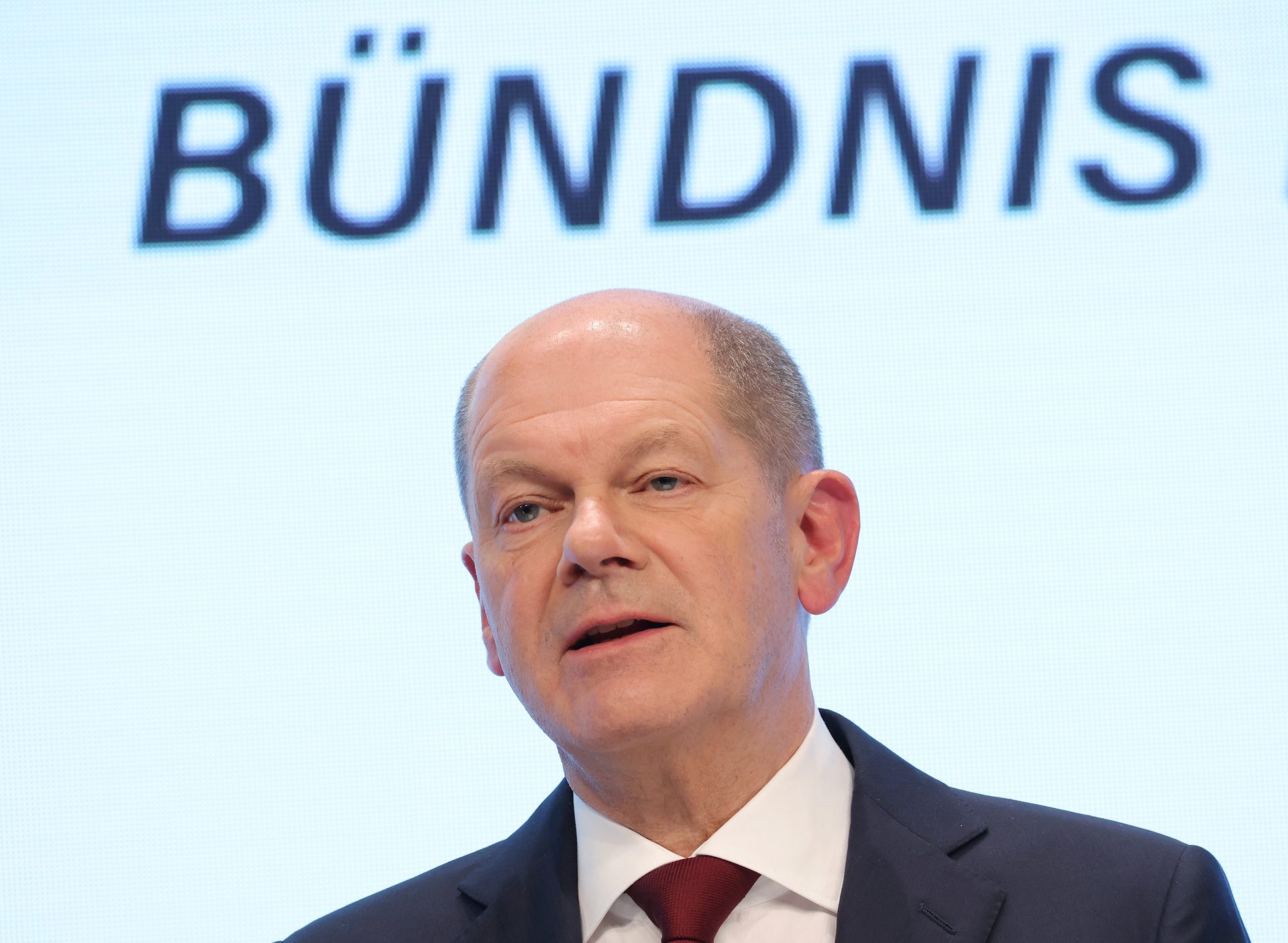Those old enough will remember when a beaming Tony Blair told a crowd at London’s Festival Hall that a new dawn had broken, to the strains of Things Can Only Get Better. Germany has just undergone its own 1997 moment, but it did so in its own understated way.
There are many reasons why the optimism that greeted the formation of the three-party ‘traffic light’ coalition was cautious at best. Within days the news was overtaken by Covid. Germany struggles to deal with vaccine refuseniks as hospitals fill up. Concerns about rising cases are compounded by discovery of the new Omicron variant. And both of these are compounded by the national characteristic of anxiety.
Germans cannot countenance Britain’s laissez faire approach. Their statistics are worrying, and they are getting worse, but death rates have been consistently lower than the UK’s and other countries’. Anybody not wearing a mask in public places (including in open-air markets) is regarded here as either an extremist or someone with ‘issues’.
Therein lies the broader dilemma facing the incoming chancellor, Olaf Scholz. The word of the moment is ‘modernisation’. With broadband speeds slower than Albania’s, with big infrastructure projects the butt of jokes and frustration, Germany needs radical domestic reform. On that the three disparate groupings can agree.
It sounds good in theory, but can they bring along with them a population that is chronically risk-averse? After 16 years, Angela Merkel’s comfort blanket is about to be removed. Even if the new government introduces a fraction of what is promised in the 177-page coalition agreement, the country is set to undergo significant change.
The opening up of dual citizenship is the centrepiece of a radical social reform agenda, alongside legalisation of cannabis and greater trans and other minority rights. Votes for 16-year-olds is unlikely to get through, as constitutional measures such as this require two-thirds of the votes in both houses of parliament.
It will help, though, in defining the Christian Democrats (CDU), Merkel’s party, as the old people’s party, as they and the far-right AfD will almost certainly oppose it.
It took just shy of two months to hammer out the deal, a testament to the deliberative nature of German politics. All sides had to compromise to get it through, and all have been required to put the deal to their own parties for approval.
Already recriminations are surfacing among the Greens. The more radical wing, the fundis, have accused the party’s two leaders, Robert Habeck and Annaleena Baerbock, of stitching up ministerial appointments for the moderate wing, and of watering down climate pledges.
A commitment to keep Germany on the “path to 1.5 degrees” is threaded throughout. It is accompanied by a pledge to bring the coal phase-out forward to 2030 from 2038, but it is little more than aspiration. More significant is a planned increase in the share of renewables in Germany’s electricity mix to 80% by 2030.
The biggest battle will be on spending. The incoming administration has reaffirmed its commitment to the “debt brake”, which limits deficit spending and is now enshrined in the constitution. The liberal Free Democrats, the smallest of the three parties in terms of vote share, insisted on the Finance Ministry for its leader, Christian Lindner. He made a big play during the election campaign of the FDP being the only party of low taxation – which happens to be true.
The trouble is the government has also pledged to overhaul the country’s ailing infrastructure, to increase the minimum wage, to keep social security payments at their present generous level, reform pensions and increase spending on green energy. Borrowing will take place on the sly, with a raft of complex tools to get around the austerity rule, including beefing up the state development bank, extending debt repayments and tweaking the calculation of Germany’s structural budget deficit.
So far, the FDP and the Greens have been making all the noise. The government’s biggest characters are likely to be Lindner, Habeck (taking on a new expanded Economics and Climate Change Ministry), alongside Baerbock, the Foreign Minister.
The delphic Scholz won the election by saying little of note, allowing the others to make their mistakes. In this and in much else, he is seeking to emulate Merkel. She could afford to be taciturn because her years in office had given her a quiet authority on the global stage. He will not enjoy that to start with, but he has a certain steel in his eyes.
The coalition agreement hints at a tougher approach to Russia and China, putting human rights at the heart of policy. After a decade and a half of Merkel’s cautious incrementalism, how much will actually change? Those first interactions with Vladimir Putin and Xi Jinping will be eagerly watched.
From day one next week when he walks into the Chancellery, Scholz, like all other international leaders, will have a more immediate concern – managing the pandemic. Once again, Germans will be looking for reassurance.











